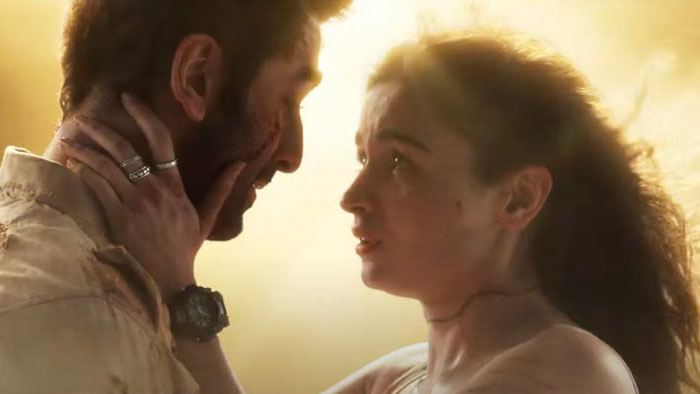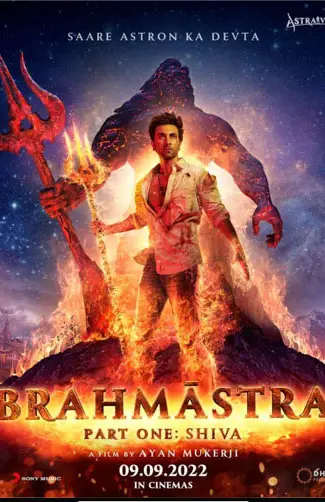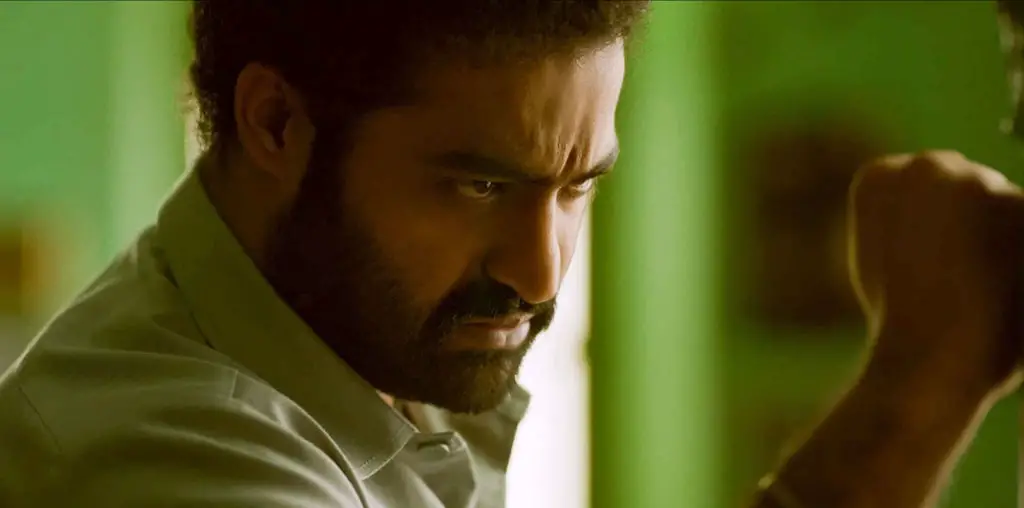
Director Ayan Mukerji’s Bhramastra is the first in a trilogy (all in various stages of production simultaneously) that has been in the making for the last eight years. Over that period, it raised so much hype and enthusiasm. There have been talks about how the visuals and story that would change cinematic vision in the Hindi film industry. The trailer made all that feel true. A stellar cast, visibly impressive work on the VFX, a blend of several themes and genres, and references to all the tales I grew up on taking a revitalized form in this modern world setting. Everything was promising enough to watch the movie with high hopes and thrill.
Does Bhramastra (stylized as Brahmāstra: Part One – Shiva) step up on all these elements? Well, co-writers Hussain Dalal and Mukerji deliver on some of that promise. Shiva (Ranbir Kapoor) is a disc jockey who embarks on a journey to realize his place in a long-lasting history of ancient celestial weapons called astras. As he figures out his connection to the impending chaos between good and evil, Shiva must find and learn to control his powers and become his true self. It sounds like a true Indian mythological adventure, right?

“…a disc jockey…embarks on a journey to realize his place in a long-lasting history of ancient celestial weapons…”
Well, if there ever were a possibility for an actual fantasy feature to be made in India, it would always be about the ancient Indian mythos. The West has done several productions on such a concept, deriving stories from the Bible and other religious texts and scriptures. The Indian motion picture industry took a chance here, and Mukerji has done a phenomenal job in his research.
Bhramastra takes inspiration from epic holy contexts and visualizes them in colorful and glorious visual effects, offering a spectacular viewing experience, especially for the theatrical audience. The astras, supernatural avatars, look splendid, with their designs perfectly displaying the magic behind them. The reflection of old mythical ideas in a modern setting and filmmaking elements new to the industry accounts for a blockbuster. It’s not a religious or spiritual movie, which is a good point about it. It is a wholesome entertainer with an original plot, aspiring to become a massive franchise.
The narrative about a man seeking self-realization in a world full of fantasies will surely remind you of the Marvel Cinematic Universe. The comparisons start right away. Introductory narration overlaps with still graphics that sink us into this world, similar to Eternals. But, given that Mukerji plans to expand this into its own cinematic universe (Astraverse), those comparisons don’t pull the flick down. They instead successfully bring it to the near-equivalent of a Marvel franchise for India.

"…the near-equivalent of a Marvel franchise for India."


